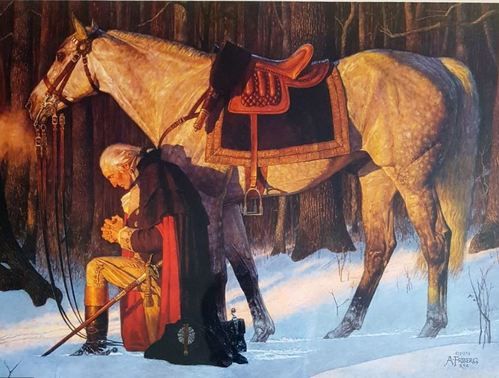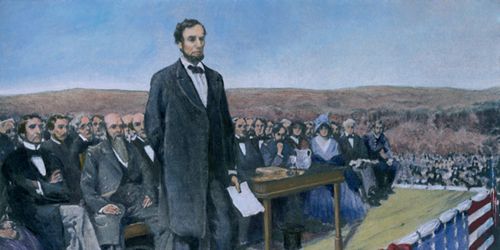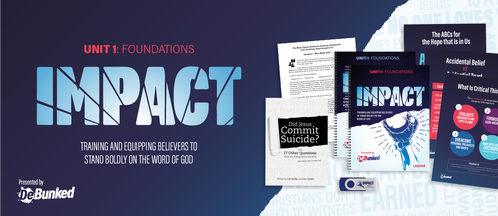Lessons from February's Sons, Part 2
In a moving eulogy written by his dear friend, Henry “Light Horse Harry” Lee, George Washington was remembered as “First in war, first in peace, and first in the hearts of his countrymen.” Today’s blog will focus on valuable takeaways from our 1st president and Abraham Lincoln, our 16th president, as the conclusion of lessons from “great men born in February.”
As you recall from the last blog, my mother’s saying, “All great men were born in February,” which was typically tied to my father’s birthday and Presidents’ Day, spawned the writing of this two-part blog. Last week, I was privileged to share lessons learned from my father and President Ronald Reagan, who shared his birthday. Here’s a quick recap:
- Hard work and an attitude of excellence lead to a sense of purpose (Psalm 128:2; Proverbs 16:3; Colossians 3:23-24).
- “All great change in America begins at the dinner table.”—Ronald Reagan (Deuteronomy 6:7)

Presidents’ Day, a federal holiday celebrated on the third Monday in February—meaning no school, banking, or mail delivery in most people’s minds—is popularly viewed as a day to celebrate all U.S. presidents, past and present. But did you know it was initially established in 1885 in recognition of President George Washington?
A Legacy of Leading Rightly
George Washington, born February 11, 1731, was a young surveyor and mapmaker, a soldier and patriot, who later became the first to hold the title "President of the United States." His relationship with God was apparent in his character and to all who knew him.1 He treated all fairly and respectfully and took his leadership responsibilities seriously and solemnly. It has been well-documented that he asserted the following:
"It is impossible to rightly govern the world without God and the Bible."2

He had earned the right to utter these words with confidence and conviction as he had participated in the labor pains of our nation’s birth which he believed occurred only through prayer, grace, and the Divine Providence of Almighty God. I would be remiss if I didn’t point out that our nation’s inception,3 witnessed by the then-known world, was considered miraculous by all definitions. Washington understood Proverbs 14:34, “Righteousness exalts a nation, but sin is a reproach to any people.” He lived and verbalized what it took to form and sustain a great nation. His words and leadership followed the challenge outlined in 2 Chronicles 7:14, “If My people who are called by My name will humble themselves, and pray and seek My face, and turn from their wicked ways, then I will hear from heaven, and will forgive their sin and heal their land.” Without a doubt, God’s divine intervention was realized in the leadership of this great man.
A Legacy of Acknowledging God and His Word
Abraham Lincoln, the 16th President of the United States, was born on February 12, 1809. His rise to this pinnacle of leadership was not easily acquired, having lost several bids for positions along the way. However, he is probably most well-known for his Gettysburg Address—one of the most important speeches in American history. He attested that “all men are created equal and are endowed by their Creator with certain unalienable rights.”

He also reminded the nation in the midst of one of its darkest times:
[I]t is the duty of nations as well … and to recognize the sublime truth announced in the Holy Scriptures and proven by all history that those nations only are blessed whose God is the Lord [Psalm 33:12] …. But we have forgotten God. We have forgotten the gracious hand which preserved us in peace and multiplied and enriched and strengthened us, and we have vainly imagined in the deceitfulness of our hearts that all these blessings were produced by some superior wisdom and virtue of our own. Intoxicated with unbroken success, we have become too self-sufficient to feel the necessity of redeeming and preserving grace—too proud to pray to the God that made us.4
At a minimum, we know that Lincoln was a God-fearing man, who acknowledged Him as Creator, author of the Bible, Savior of the world, and originator of morality.5 There seems to be debate among theologians, however, as to whether he had actually accepted Christ as His Savior, as is surmised from another quotation made by him about 20 years before his assassination, “… it’s true that I have never made any profession of Christian belief, but I’ve never scorned Christians….” Because he was a private man, no one other than God or himself knows if he became a Christian before he died. Nevertheless, he was not ignorant of what it took to cause the rise or fall of a nation—prayer and acknowledgment of the Lord God.
As wisely stated decades earlier by Benjamin Franklin (not born in February), “I have lived, sir, a long time, and the longer I live, the more convincing proofs I see of this truth—that God governs in the affairs of men.”6 Without a doubt, God chose Abraham Lincoln, and many others, as a conduits for such governing.
Though much more could be said about these “sons of February” and what we can glean from their words and lives, this brings us to our conclusion. Indeed, the greatest lessons of all recognize the need for God and His Word in navigating this life on earth. I pray that you will be left with the following thought to ponder. Psalm 108:13 states, “Through God we shall do valiantly.” Adherence to the wisdom in this verse is the mantra that signifies true greatness, not the month in which one was born.
“I have lived, sir, a long time, and the longer I live, the more convincing proofs I see of this truth—that God governs in the affairs of men.”
—Benjamin Franklin
Notes:
1 George Washington, The Writings of George Washington, Jared Sparks, ed. (Boston: Ferdinand Andrews, 1838), Vol. XII, pp. 399-411. Other sources include George Washington the Christian (1917) by William Johnson and How Washington Prayed (1932) by William Jackson Johnstone.
2 James K. Paulding, A Life of Washington (New York: Harper & Brothers, 1835), Vol. II, p. 209.
3 If you have the opportunity, you should take the time to delve into our country’s story from primary source documents; you can’t help but note that the moral fibers of the USA began to unravel only since God and the Bible have been excluded from our country’s institutions and communities.
4 Abraham Lincoln, Complete Works of Abraham Lincoln, John G. Nicolay and John Hay, editors (New York: Tandy-Thomas Company, 1894), Vol. VIII, pp. 235-236, “Proclamation Appointing a National Fast Day, March 30, 1863.”
5 Abraham Lincoln, Complete Works Comprising his Speeches, Letters, State Papers, and Miscellaneous Writings, John Nicolay and John Hay, editors (New York: The Century Co., 1894), Vol. Two, p. 574, “Reply to Committee of Colored People of Baltimore Who Presented Him with a Bible.”
6 Max Farrand, The Records of the Federal Convention of 1787 (New Haven: Yale University Press, 1911), Vol. I, pp. 450-452, from James Madison’s Notes on the Convention for June 28, 1787.
1 George Washington, The Writings of George Washington, Jared Sparks, ed. (Boston: Ferdinand Andrews, 1838), Vol. XII, pp. 399-411. Other sources include George Washington the Christian (1917) by William Johnson and How Washington Prayed (1932) by William Jackson Johnstone.
2 James K. Paulding, A Life of Washington (New York: Harper & Brothers, 1835), Vol. II, p. 209.
3 If you have the opportunity, you should take the time to delve into our country’s story from primary source documents; you can’t help but note that the moral fibers of the USA began to unravel only since God and the Bible have been excluded from our country’s institutions and communities.
4 Abraham Lincoln, Complete Works of Abraham Lincoln, John G. Nicolay and John Hay, editors (New York: Tandy-Thomas Company, 1894), Vol. VIII, pp. 235-236, “Proclamation Appointing a National Fast Day, March 30, 1863.”
5 Abraham Lincoln, Complete Works Comprising his Speeches, Letters, State Papers, and Miscellaneous Writings, John Nicolay and John Hay, editors (New York: The Century Co., 1894), Vol. Two, p. 574, “Reply to Committee of Colored People of Baltimore Who Presented Him with a Bible.”
6 Max Farrand, The Records of the Federal Convention of 1787 (New Haven: Yale University Press, 1911), Vol. I, pp. 450-452, from James Madison’s Notes on the Convention for June 28, 1787.
Author Bio:
Holly Varnum, Director of Curriculum Development at Reasons for Hope, joined us in September 2021 to launch curricular materials to support many of our media resources. With degrees in education, curriculum and instruction, and educational administration, she comes with over three decades of experience in working with teens and adults in camp ministry, teaching and administration, and curriculum writing (A Beka Book, Focus on the Family, and Answers in Genesis to name a few). God has provided her with a well-rounded educational perspective through service in Christian schools, charter schools, public schools, homeschooling, Christian camps, and local church ministry. She has been a classroom teacher, instructional coach, administrator, camp counselor, Sunday School teacher, ladies’ Bible Study teacher, and conference speaker. She looks forward to using her passion for God’s truth within the context of Reasons for Hope.
Her hobbies include cooking, baking, hiking, camping, traveling, and working on do-it-yourself projects. Holly and her husband, Paul, also enjoy any time they can spend with their three grown daughters, two sons-in-law, and two grandchildren (so far!). They live in the beautiful state of Maine, and yes, they eat lobster (properly pronounced “lobstah”) whenever they get a chance!
Holly Varnum, Director of Curriculum Development at Reasons for Hope, joined us in September 2021 to launch curricular materials to support many of our media resources. With degrees in education, curriculum and instruction, and educational administration, she comes with over three decades of experience in working with teens and adults in camp ministry, teaching and administration, and curriculum writing (A Beka Book, Focus on the Family, and Answers in Genesis to name a few). God has provided her with a well-rounded educational perspective through service in Christian schools, charter schools, public schools, homeschooling, Christian camps, and local church ministry. She has been a classroom teacher, instructional coach, administrator, camp counselor, Sunday School teacher, ladies’ Bible Study teacher, and conference speaker. She looks forward to using her passion for God’s truth within the context of Reasons for Hope.
Her hobbies include cooking, baking, hiking, camping, traveling, and working on do-it-yourself projects. Holly and her husband, Paul, also enjoy any time they can spend with their three grown daughters, two sons-in-law, and two grandchildren (so far!). They live in the beautiful state of Maine, and yes, they eat lobster (properly pronounced “lobstah”) whenever they get a chance!

To learn more about Holly, or to book her as a speaker for educational, ladies', or girls' events, click HERE.
Our Newest Resources!
Questions you’ve never asked that we have the answers for!
What is a stink bull?
What do you call a group of rhinos? A group of zebras?
Is an elephant really flat-footed?
Get ready to embark on a learning safari of fascinating facts!
Then, use your new knowledge to become a “tour guide”
on your next field trip to the zoo!
What is a stink bull?
What do you call a group of rhinos? A group of zebras?
Is an elephant really flat-footed?
Get ready to embark on a learning safari of fascinating facts!
Then, use your new knowledge to become a “tour guide”
on your next field trip to the zoo!
We are excited to share many of our Creator’s Fascinating Facts with you and to train and equip you with knowledge—knowledge that will enable you to have a ministry in a zoo setting, sharing God’s amazing design with those who may never have heard anything but an evolutionary perspective. This resource comes with FREE access to a lesson guide with quizzes and an oral presentation rubric for those who choose to use it as an academic unit study. So click HERE to order for yourself, your children, and your grandchildren!

IMPACT curriculum trains and equips young adult believers to stand boldly on the Word of God. It helps them know why they believe what they believe so that, in turn, they can live and share their faith with confidence.
Unit 1: Foundations begins with the basic principles of apologetics, biblical worldview, and critical thinking. This groundwork prepares students to unpack the rich content of the attention-grabbing DeBunked videos while they build relationships with others, actively apply the lesson content, and find true purpose in planting seeds of faith in a world that needs the hope of Christ. Click HERE to see other related products or to order this valuable resource.
Unit 1: Foundations begins with the basic principles of apologetics, biblical worldview, and critical thinking. This groundwork prepares students to unpack the rich content of the attention-grabbing DeBunked videos while they build relationships with others, actively apply the lesson content, and find true purpose in planting seeds of faith in a world that needs the hope of Christ. Click HERE to see other related products or to order this valuable resource.

We also encourage you to purchase our newest ministry book, Did Jesus Commit Suicide? And 27 Other Questions That Teens Have About the Bible (that adults want to know, too) to help you answer questions from a biblical worldview that teens are asking today. Click HERE.

We Have an App for That!

One of the spiritual tools Reasons for Hope is able to offer is our free app, full of hundreds of digital resources to support believers in their faith as they grow in their boldness to stand on the Word of God. We invite you to download this free mobile app today. Just go to your favorite app store, type rforh, and look for the blue asterisk, or click HERE.
Posted in Holly Varnum
Recent
Archive
2026
2025
February
March
April
May
June
July
August
November
2024
February
March
April
May
June
July
August
September
November

No Comments